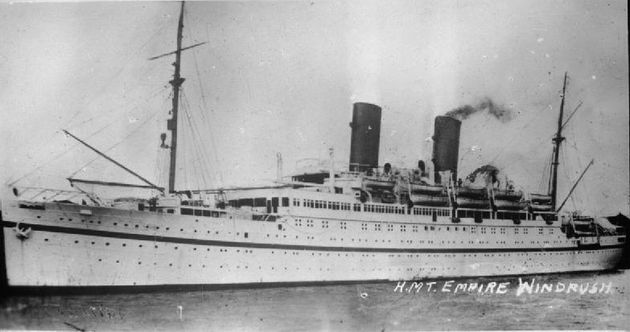The biblical view of immigration does not only consider the migrant’s position but that of the host country.
 HMT Empire Windrush.
HMT Empire Windrush.
Many British citizens who have lived and worked in this country for decades have been threatened with deportation due to a lack of official paperwork supporting their right to be here. The so-called Windrush Scandal has proved a source of embarrassment to the Conservative government, but the episode hides a more fundamental problem with the way the current system views migrants and immigration.
On 22 June 1948, MV Empire Windrush arrived at Tilbury Docks in Essex, carrying 492 passengers from the Caribbean. This was the beginning of the ‘Windrush Generation’, the wave of hundreds of thousands of immigrants who arrived over the subsequent 23 years as part of the UK’s strategy for dealing with labour shortages after the Second World War.
Many of these were children who travelled on their parents’ passports who did not have their own documentation. They settled, grew up and worked in Britain. Arriving from British colonies, they assumed they were British citizens.
In 2010, the Home Office destroyed the landing cards of Windrush migrants, leaving no proof of their right to be here.
Later changes in immigration law have led to some of those who lack documentation having their right to work or even live here questioned, with widespread anxiety that others might follow.
The Conservative government has unsurprisingly been harshly criticised for its handling of the Windrush generation, and a petition calling for an ‘amnesty’ for minors who arrived before 1971 has collected over 175,000 signatures.
IMMIGRATION IN THE BIBLE
The entry, settlement and subsequent reclassification of Windrush migrants shines a spotlight on some of the abuses inherent in our approach to immigration.
As we explore in further detail in our booklet Immigration and Justice, in the Bible there are two broad categories of migrant.
The ger (gerim in plural) is typically a refugee or migrant labourer: a displaced and vulnerable person that the Israelites are commanded to love and who is often mentioned alongside other marginalised groups such as orphans and widows (Deuteronomy 10:18-19).
Gerim are encouraged to integrate fully with Israelite society and religion.
In contrast, the nokri was financially and culturally independent and, as someone with no interest in integrating, considered a potential threat to Israel’s religion and economy.
It’s abundantly clear that most or all Windrush migrants fall into the former category of ger. These are people who travelled to the country to work, mostly in manual or blue-collar jobs – and who were initially welcomed on those grounds.
It is a huge injustice that their status has since been revisited, especially due to an administrative error. The Windrush generation has become a part of British life, filling critical vacancies in the NHS and other services, settling in their communities, putting down roots and calling this country ‘Home’.
The biblical view of immigration does not only consider the migrant’s position but that of the host country.
Israelites had a responsibility to treat gerim fairly – more than fairly, even, since they were among the most disadvantaged of society. God demanded special treatment for them. In the Windrush Scandal, Britain has bitten the hand that once helped it to feed, clothe and look after itself.
Guy Brandon is the Senior Researcher for the Jubilee Centre.
This article first appeared on the website of the Jubilee Centre and was republished with permission.

Las opiniones vertidas por nuestros colaboradores se realizan a nivel personal, pudiendo coincidir o no con la postura de la dirección de Protestante Digital.
Si quieres comentar o